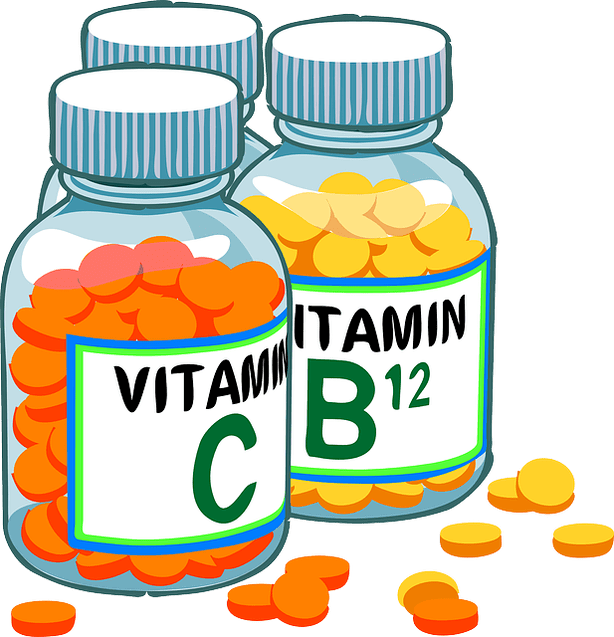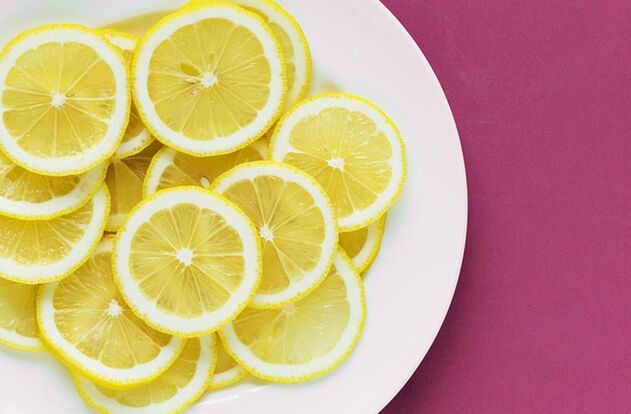Decreased libido is usually related to psychological problems: depression, fatigue, stress. This sometimes indicates not only that there is a problem between the couple, but also that they have a serious illness. Today we will tell you the effectiveness of vitamins, which will improve your sex life.

Factors affecting effectiveness: desire in the mind
Fatigue is the most common cause of low male libido. Professional changes and extended schedules often cut off all men’s sexual desires. In these cases, we have observed that libido recovers during rest periods: weekends, holidays.
Male libido is also usually affected by stress, regardless of its origin. Economic conditions, family problems, and health problems can all cause a temporary decrease in libido.
Sometimes libido depends on family relationships. The constant appearance of children and the frequent rejection of partners can burn a person and make him doubt his masculinity.
The solution to sexual desire problems is usually dialogue: between husband and wife, in the family, with a doctor or psychologist. Determining the source of anxiety can help solve sexual desire problems.
Medical reasons for decreased male libido
Sometimes there is no psychological explanation. Please keep in mind that decreased male libido can also be caused by the following reasons:
- Drugs: antidepressants, anticancer drugs, beta blockers, hormones, etc. ;
- Diseases: diabetes, obesity, thyroid damage, etc. ;
- Toxic substances: alcohol, tobacco, drugs.
Therefore, a sudden drop in libido can reveal an undiagnosed disease. In any case, if low libido is bothering you, if it seriously affects your daily life, please see a doctor.
notes. Some men take drugs that have side effects that reduce libido. They usually want to stop treatment in order to return to a normal sex life. You don't need to do this! It is best to solve the problem caused by the prescription first, and then solve the sexual desire problem.

Vitamins
Vitamin A
Vitamin A is involved in maintaining the human immune system and sexual function, especially the male impotence vitamin. This is important for sperm formation in the testes. It comes in two forms: retinol derived from animals and provitamin A or β-carotene derived from fruits and vegetables.
- Recommended adult male dose: 900 micrograms/day.
- It is found in poultry liver (10, 000 micrograms per 100 grams), oily fish and whole dairy products, especially butter. Beta-carotene is a plant-based vitamin A found in orange fruits and vegetables: sweet potatoes, pumpkins and carrots.
B vitamins
B vitamins are a large group of vitamins, which are essential for many important functions of the human body.
B3, especially niacin, is used by the body to synthesize sex hormones. Therefore, B3 deficiency can lead to a decrease in testosterone (desire hormone). It is found in yeast, wild rice, bran and almonds. The synthesis also requires tryptophan, which is found in animal products, meat, fish and dairy products.
B5 is involved in the production of sex hormones and neurotransmitters. Like B6, it is also used to produce red blood cells, serotonin and dopamine, as well as hormones that regulate mood and libido. B5 and B6 are found in yeast, veal liver, sunflower seeds, mushrooms, soybeans, oatmeal, buckwheat, lentils, etc.
B9 is called folic acid. As shown in a 2014 study, this vitamin plays an important role in the metabolism of nitric oxide.

The functional state of the penis (relaxation or erection) is regulated by smooth muscle tension. Nitric oxide is a substance responsible for relaxing smooth muscles and blood vessels, allowing blood to circulate freely in the muscles. In addition, it can also reduce oxidative stress caused by free radicals, thereby improving erectile dysfunction. You can get this vitamin through supplements and certain foods such as spinach, lentils, lettuce, avocado, and broccoli.
B12 is essential for the function of the nervous system involved in sexual arousal. In addition, B12 deficiency can cause anemia and more severe fatigue, and B12 supplements can stimulate endurance and restore energy. B12 is found in shellfish, fish, liver, eggs, meat and dairy products.
Vitamin C
This water-soluble vitamin, also known as ascorbic acid, is essential for improving the body's metabolism.
Among them, it stimulates the immune system and the absorption of iron in food, thereby promoting the production of red blood cells, which helps increase energy in the body and makes ascorbic acid a good sex stimulant.
It is also a powerful antioxidant. Smokers consume most of the ascorbic acid through food and therefore need to be supplemented.
- Recommended dose for adult males: 500 mg/day.
- Especially in kiwi fruit (71 mg), citrus fruits (lemon, orange, grapefruit, orange, etc. ), pepper, strawberry, broccoli, melon.

Vitamin D
Vitamin D is essential for fighting winter depression and helps prevent many types of cancer. It also helps to solve the problem of libido. According to several studies, the level of testosterone in the body is related to the level of vitamin D. This is why it is called the vitamin of desire. It also promotes sperm mobility. Therefore, vitamin D is the king of vitamins that are potent for men.
Vitamin D is synthesized by the body in summer, provided that a person has enough time in the sun. If you cannot afford it, you need to take special supplements.
- Recommended dose for adult males: 10, 000 IU / 15 kg.
- Mainly found in fish oil and egg yolk.
Vitamin E
This fat-soluble substance (dissolved in oil) was discovered in wheat germ in 1922. It is an essential antioxidant that protects the body's lipids, especially cell membranes, and prevents oxidation due to the attack of free radicals. It is essential to human reproductive function. Vitamin E can also maintain the health of the cardiovascular organs, which is essential for the quality of penile erections.
It exists in the form of various isomers (α-tocopherol, γ-tocopherol and tocotrienol). Tocotrienols have the best antioxidant and anti-cancer effects.
- Recommended adult male dose: 15 mg/day.
- Large doses are found in the following foods: wheat germ (21 mg/1 tbsp), almonds, sunflower seeds, pine nuts, Brazil nuts, dried tomatoes, sardines, avocados.

Vitamin K
Vitamin K is a blood clotting vitamin that stimulates the production of testosterone in a dose-dependent manner. In the K2 form, this will be the most effective. If you are taking anticoagulant drugs, be careful, you should not take vitamin K.
- Recommended adult male dose: 120 micrograms/day.
- It is found in plants and fermented foods. The supplement is provided in the form of Menaquinone or MK7, which is the most effective bioavailable form.
calcium
According to a December 2010 study, calcium as well as folic acid, vitamins E and C may have a therapeutic effect on erectile dysfunction (ED). Scientists have discovered that all these nutrients have a positive effect on a variety of vascular factors, and therefore can improve erectile dysfunction. Research has also shown that this combination of vitamins and minerals may help traditional medicines used for ED to work more effectively.
Zinc
It is another mineral used to treat various health problems, including increasing sperm production and improving male fertility. The doctor also provides foods rich in zinc, such as beef, oysters, dark chocolate, chicken, beans and so on. Used for people with enlarged prostate and other sexual dysfunction.

boron
Boron is one of the most commonly used minerals in medicines and nutritional supplements. In addition to improving bone and muscle health, you also help increase testosterone levels and improve mental health.
magnesium
It is also called the miracle mineral of the body because it is involved in more than 300 processes in the body, from sex hormones to neurotransmitters.
selenium
For men, selenium is important for potency because it helps sperm production and supports mobility. Approximately 50% of the selenium in the human body is found in the testicles and seminal ducts. The doctor said that every time you ejaculate, selenium is lost. Therefore, you need to eat more selenium-rich foods and take supplements.
Daily exchange rate
| substance | Daily dose | Maximum dose | Best food source |
| Vitamin A | 3000 international units | 3000-10, 000 IU | Orange, yellow, red and green fruits and vegetables |
| Vitamin D | 9-50 years old: 200 IU 51-70 years old: 400 IU >70 years old: 600 IU Osteopenia or osteoporosis: 1000 IU |
1000 international units | Fortified milk, oily fish |
| Vitamin E | 22 IU | 200 international units | Wheat germ, vegetable oil, nuts |
| Vitamin K | 120 μg | Green leafy vegetables | |
| Vitamin C | 90 mg Smoker: + 35 mg |
500-2000 mg | Fruits and vegetables, especially peppers and citrus fruits |
| Thiamine (Bone) | 1. 2 mg | 30-100 mg | Whole grains, brown rice, fortified foods, beans, pork, oysters |
| Riboflavin (B2) | 1, 3 mg | 30-100 mg | Dairy products, green leafy vegetables, oysters |
| Niacin (niacin) | 16 mg | 500-1000 mg | Poultry, red meat, fish, beans, peanut butter, nuts |
| Vitamin B6 | 1. 3-1. 7 mg | 100 mg | Meat, fish, poultry, eggs, potatoes, fortified grains, peanuts, soybeans |
| Folic acid | 0, 4 mg | 0. 4-1. 0 mg | Green leafy vegetables, beans, oranges, broccoli, cauliflower |
| Vitamin B12(Cobalamin) | 2. 4 μg | 1000 micrograms per week or month (if lacking) | Fish, seafood, meat, soy milk and fortified rice, fermented soy products |
| calcium | 1000-1200 mg | 1000-1, 500 mg | Dairy products, soy milk and fortified rice, fish bones |
| magnesium | 400 mg | 350 mg | Whole grains, nuts, green vegetables, legumes |
| iron | 8 mg | Only used to treat anemia caused by iron deficiency | Meat, beans, tofu, green leafy vegetables, breakfast cereals |
| Zinc | 11 mg | 40 mg | Oysters, meat, poultry, fish |
| selenium | 55 μg | 100-400 micrograms | Whole grain poultry, meat, dairy products grown in selenium-rich soil |

















































































